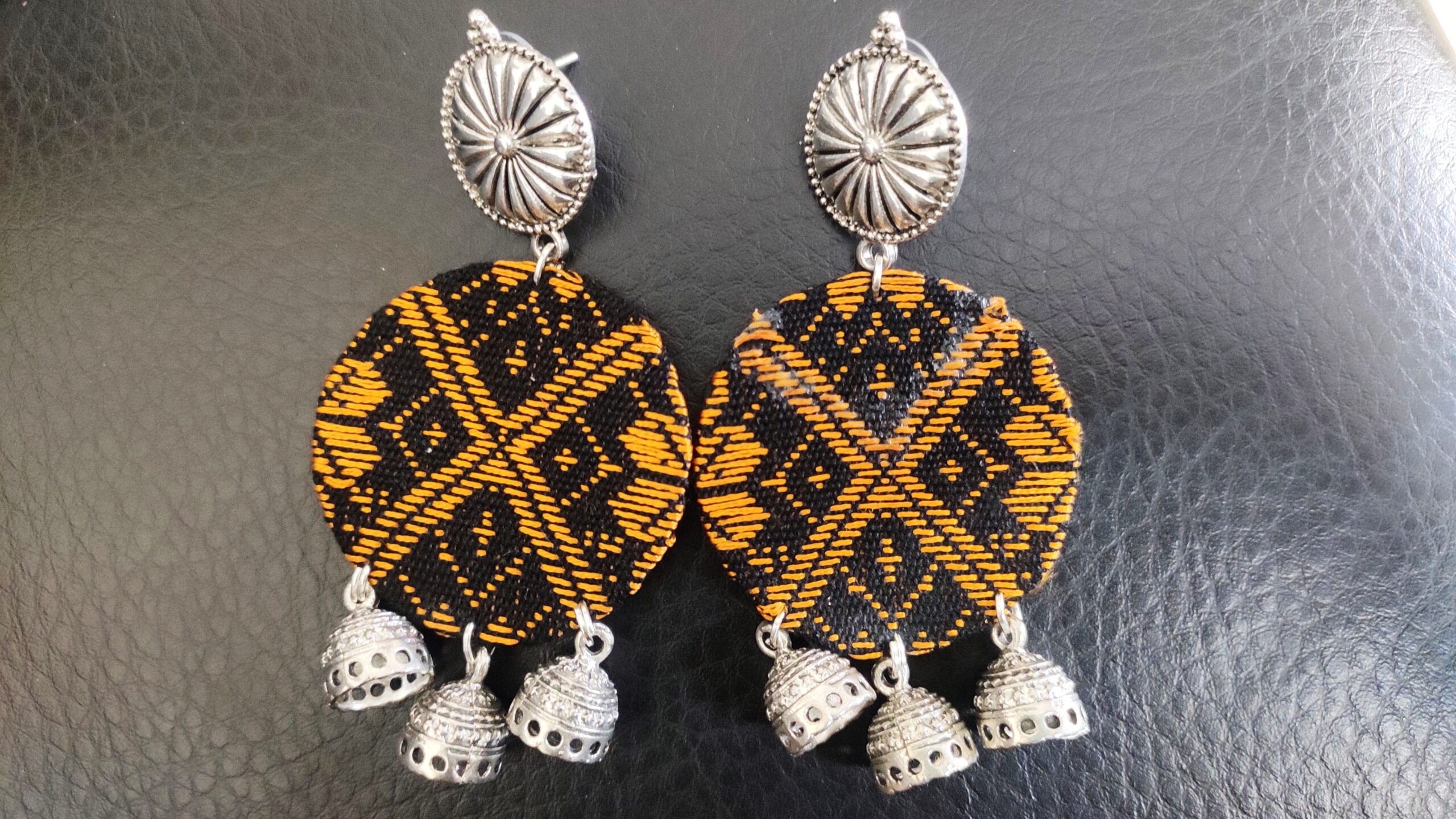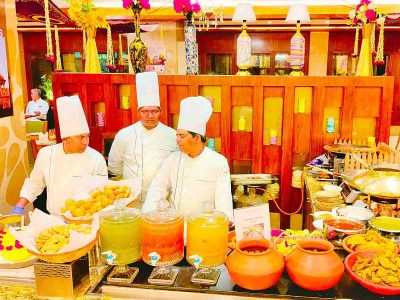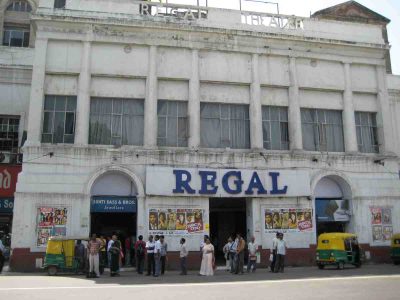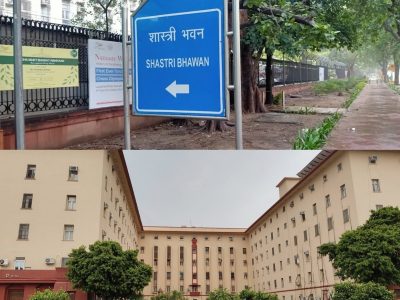With more than 200 entrepreneurs, artisans, weavers, start-ups, self-help groups and other vendors, the sixth edition of the Rongali festival in Guwahati, Assam saw a huge crowd responding to the ‘Vocal for Local’ campaign – which was also this year’s theme. The three-day festival that commenced on 8 April was back after a hiatus of two years.
As they remained confined to the four walls of their homes during pandemic restrictions, their creativity and entrepreneurship spirit came to the fore. While some took up hobbies, several others started businesses. Rongali festival was the perfect platform to give exposure to these aspiring businesses and simultaneously celebrate Assamese culture.
“This year, the focus was Vocal for Local to encourage entrepreneurship in Assam. Around 200 stalls displayed a variety of projects with a focus on agriculture, food processing, and crafts. Many startups displayed their products. Many SHGs and women entrepreneurs participated”, said Shamkanu Mahanta, the Chief Organiser of the Rongali festival.
Entrepreneurship was the focus of Rongali since its inception, but the pandemic made the organisers realise that there is an urgent need to create an ecosystem for entrepreneurship in this year’s exhibition.
“I have seen a lot of diversity in the stalls here,” observed Kritika Doshi, an independent journalist from Mumbai. “You have everything from the mekhela-chador (traditional attire of Assamese women) to local, organic tea. Some of this stuff is expensive, but it is worth it. Where else will I purchase authentic Assamese products?”
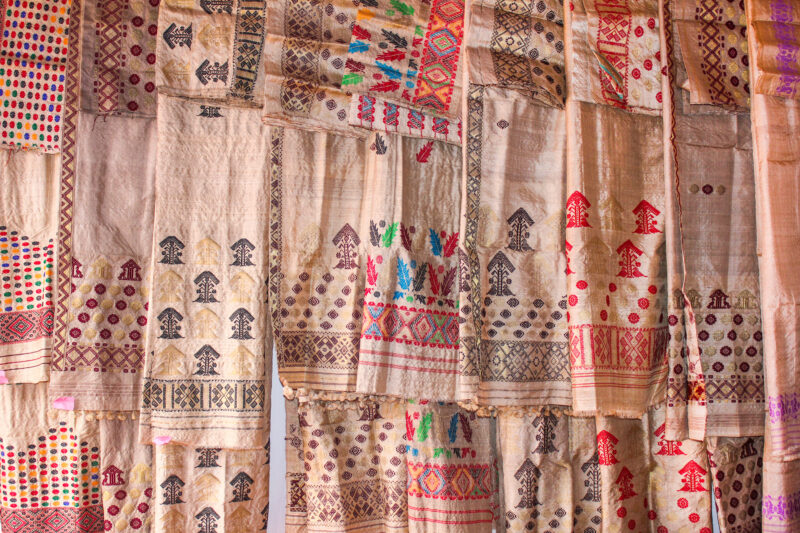
Several businesses registered a big sale on the inaugural day itself. Kabita Kalita started selling handmade jewelery before Covid, and this opportunity to present her ‘Shreejani Handcrafted Jewellery’ at the festival was a much-needed boost.
“It takes me about 2-3 hours to craft one pair of traditional earrings. The detailing and styling takes some time too. Though I was notching up average sales before, the festival pushed us up higher. People saw something unique in our jewellery. I was very nervous about how this will all turn out, but we made a sale of Rs 5,000-6,000 on the inaugural day itself. The response was amazing too. It was a confidence boost, and we would love to be back here next year”, Kalita says.
The exhibition had stalls for other women-run businesses like ‘Kimchi Eonni’ by Avikali Zhimomi, which offered Korean pickles (kimchi) and seaweed rice rolls; ‘Crafstarbychetry’ by Piya Chetry, which sold handcrafted material; ‘Ainu’s Handloom’ by Ainumony Rajchoudhry, which primarily displayed mekhela; ‘AA-Alankar’ by Dikumoni Deka for handcrafted jewellery.
Archana Das, who runs a handloom business called ‘Paat Gabhoru’, says that she too received a good response though it was below her expectations. She attributes the low sales to costly handloom material and the moderate rains that the city saw during the three-day festival.
“We sell traditional handloom mekhela, and the manufacturing cost is itself high,” she explained. “So, the product becomes expensive too. Most people don’t want to spend that much in one visit, at one stall.” The traditional mekhela sold at various stalls at the exhibition were all priced above Rs 2,000.
Nevertheless, she says that she made total sales of almost Rs 60,000 only through mekhela at the festival. “We also had jewellery at the stall, but our primary product is the mekhela. I have been running this business since four years. In the last two pandemic years, we didn’t sell much. No sales. So we expected higher sales at the festival. But people are still recovering economically, I understand”, Das says. She adds that she’s hopeful next year’s festival will garner a higher response.
In contrast, however, another handloom business did well beyond the owner’s expectations. Pinki Moni Saikia runs the ‘Okhomiya Hajpar’ handloom enterprise. She started selling jewellery and other items in 2017, but only opened her boutique in 2021, after a push from friends, family and customers.
“I design the products myself, but they are manufactured by my team. I was working as an accountant at a renowned company simultaneously. During lockdown though, we were impacted financially. So, that too gave me a push to start my boutique and sell items that I dedicatedly design. I made a switch from full-time to part-time at the same job so that I have a stable flow of income, but I also have proper time to focus on my business”, she says.
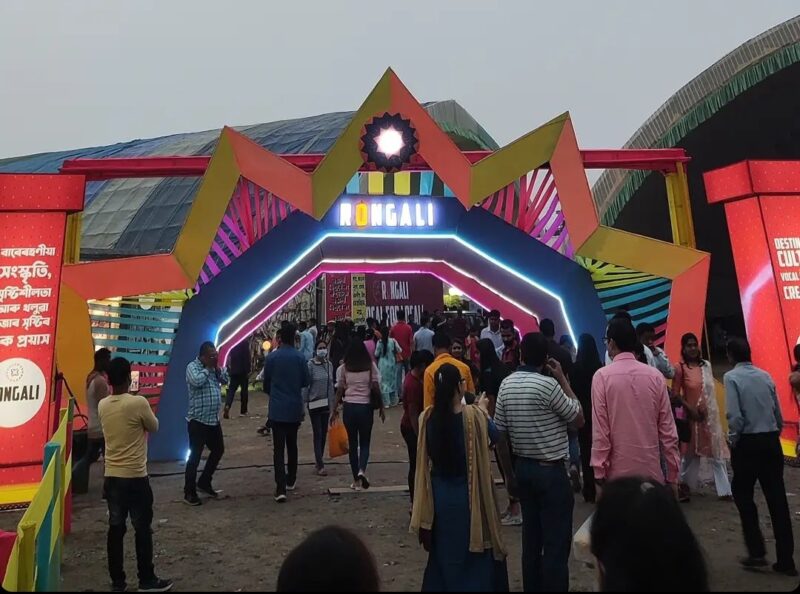
After all the hustle, Saikia’s stall made total sales of more than Rs 1 lakh at the Rongali festival just by selling mekhela and jewellery. “I was overwhelmed to receive this kind of a response. It was my first exhibition ever and I did not know what to expect”, she says. While the festival gave her a boost of confidence, she attributes the sales not only to her line of products, but also to strategic marketing. “If you have to run a business, you need strong marketing”, she adds.
Unquestionably, marketing is the make or break factor. Those who advertised and marketed the products well prior to the event on social media and at local spaces did well. Though Rongali has given a promising platform and exposure to these businesses, the festival organisers should consider if they can also help the entrepreneurs with basic marketing to boost the sales and nurture the spirit of entrepreneurship they envision.
According to Mahakanu, most of the stalls earned more than Rs 3 lakh. Almost every business delivers products across India, thus adding to the “Assamese exposure” that several stall owners mentioned.
“Long term market linkages were established. The idea has caught the attention of people, and in the coming days, many such exhibitions will be organised all over Assam which will create strong fundamentals of entrepreneurship.”
For more stories that cover the ongoings of Delhi NCR, follow us on:
Instagram: https://www.instagram.com/thepatriot_in/
Twitter: https://twitter.com/Patriot_Delhi
Facebook: https://www.facebook.com/Thepatriotnewsindia

